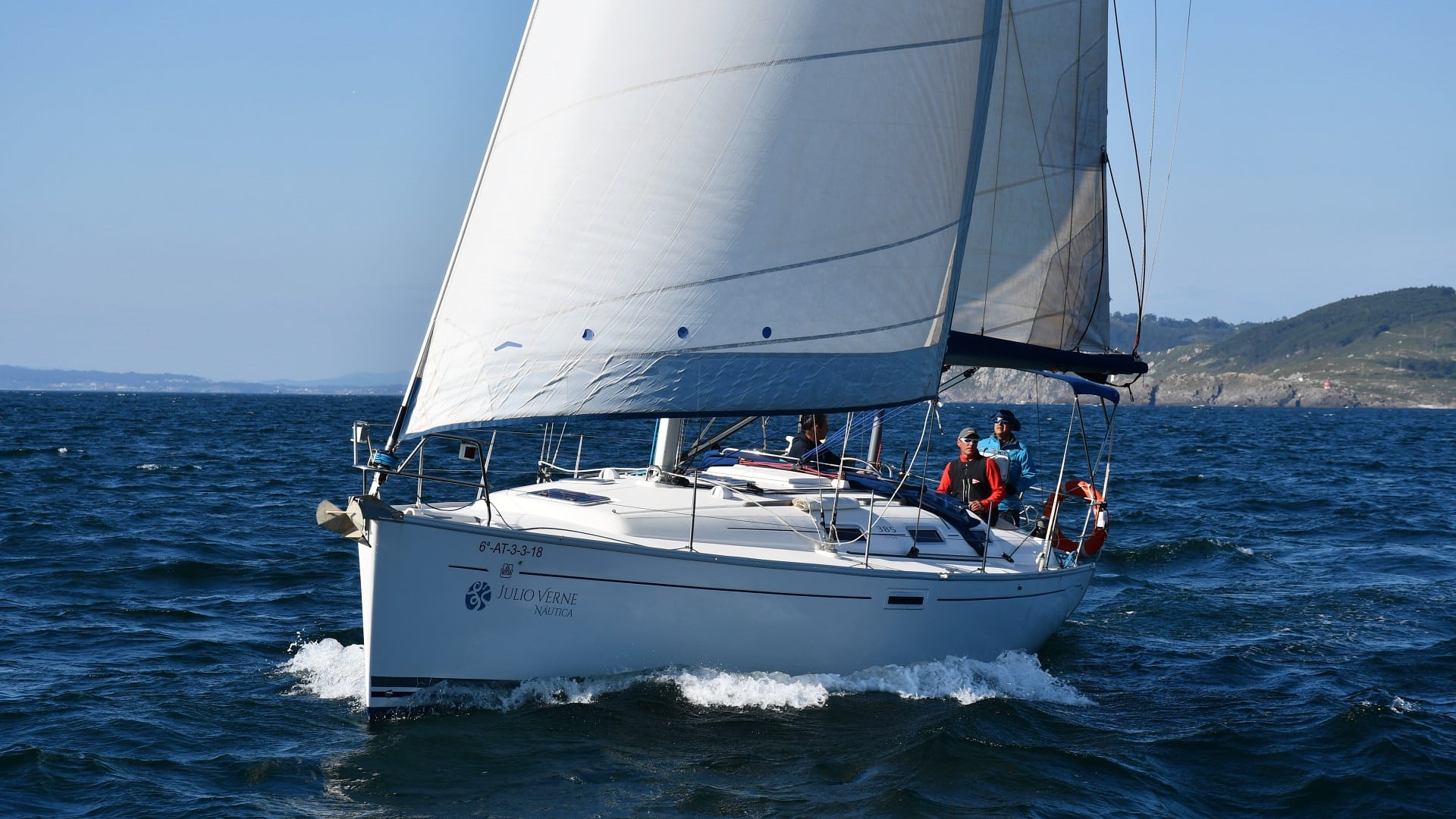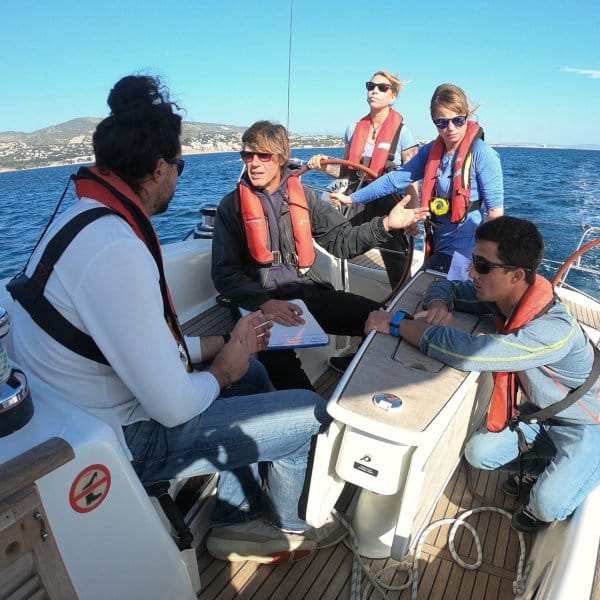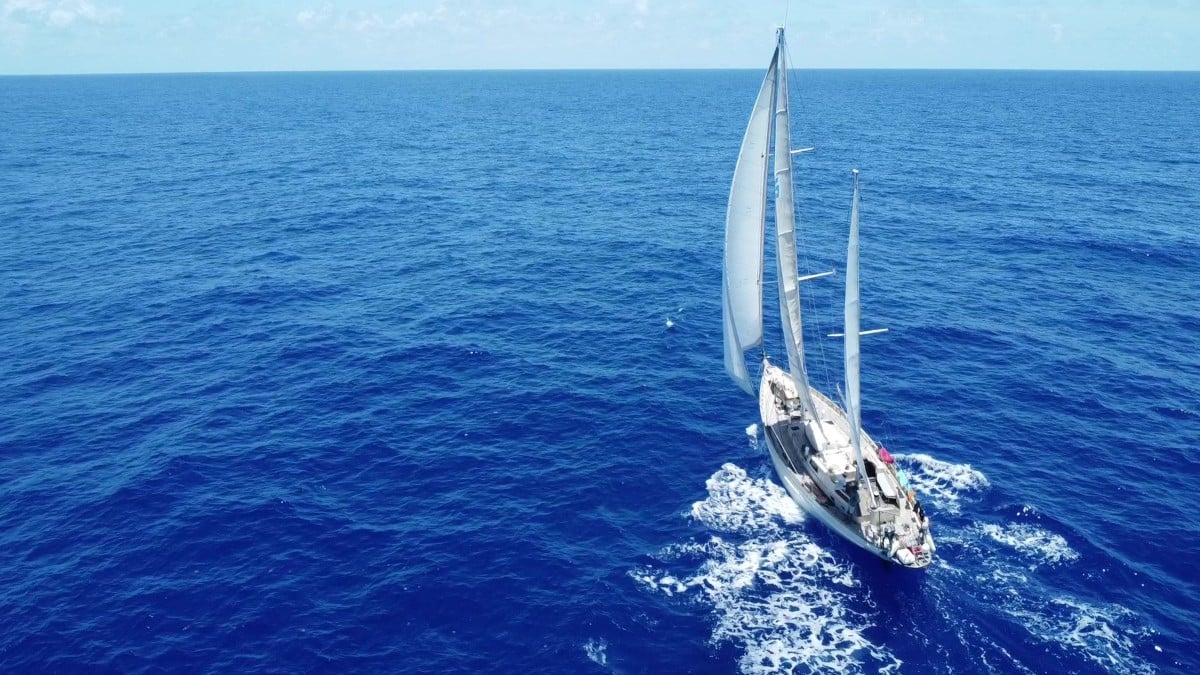
Tips for choosing a nautical school, what should I take into account?
Recent articles
Ocean Sailing: an adventure without limits
If you have come this far, you are probably looking to obtain a qualification and/or improve your sailing skills to become a skipper, and for that you need a nautical school. But how to find and choose among all the available offer? Aware of the concerns and needs of students, we explain the keys to choose in the most objective way possible.
Location
The area you choose to learn to sail is very important to enjoy a boat.In Spain we have the privilege of being surrounded by different seas and have a multitude of places where we can practice our practices. When assessing which area to choose, our advice is that you should not think so much about its proximity as about the sailing conditions it offers. To gain confidence and safety, the ideal is to sail in protected and open waters.
On the internet you will also find some inland schools that carry out their practices on lakes and reservoirs for . It is a “comfortable” option for the student and of course it is enough to start sailing, but it is not the best option to progress as a skipper, because these places have much easier conditions than the sea as there are no waves, so it is a start but you will not be adequately prepared when you want to sail on your vacations along the coast.
Educational Center
Did you know? To be able to provide theoretical and practical training, a nautical school must have the approval of the competent administration in the autonomous community where the activity is exercised.
An accredited school should be a guarantee that it meets minimum quality conditions, and that its instructors are professionals with proven experience. But make sure you also find out what the facilities are like, the condition and age of the boats and, above all, the curriculum of the instructors. It can make all the difference!
Faculty experience
The level of preparation of the instructors is, without a doubt, a key point to take into account when comparing nautical schools. It may sound obvious but most students look more at the price of classes than the curriculum of the teachers before hiring their practices. The consequence is that, in many cases, the quality of training and the level of attention they get are not as desired. You should choose a sailing school that has a team of instructors who are professional team of instructors who are professional boating instructors with extensive and have an extensive sailing and training background, and ensures that all necessary levels of training are offered.
Fleet status
To avoid unpleasant surprises, never hire an internship without first knowing the condition of the boats. available for that purpose, even if only through photographs or videos. It also values the age and performance of the boats when comparing schools, as well as the variety of available fleet.
You should know that in many centers carry out their internships on ships that hire intermediariesTherefore, they cannot always guarantee availability of dates or the same type of boat. Therefore our advice is to choose a nautical school with its own fleetwell maintained and of course homologated.
Advantages of Julio Verne Náutica as a nautical school
- We are extremely fortunate to be located in the best sailing area of the Iberian Peninsula, the Rías Baixas. Here the estuaries provide a safe space to sail all year round, with light and moderate winds and calm waters. Conditions that are ideal for learning (no waves or swell) and that we call Easy Sailing. At the same time, less than an hour of navigation we have a progressive increase in the difficulty of steering when leaving the estuaries. All the scenarios at hand to practice, gain confidence and enjoy.
- In our school we have professional instructors, with thousands of miles of sailing experience on pleasure boats, and just as important: with vocation and passion for teaching.And just as important: with vocation and passion for teaching.
- Our is the widest range of courses in the Spanish Atlantic.:
- All Spanish sports qualifications both theoretical and practical
- RYA Yachtmaster Scheme, the most prestigious and recognized qualifications and training system in the yachting world.
- Sailing school to reach the necessary standards to sail with confidence and safety for students who want to improve their techniques and skills.
- We work with small groups (maximum ratio 5:1) in order to guarantee the quality and the best use of the training.
- We offer our students action plans to improve once they have completed the courses and personal advice personal advice on important matters such as: further training, renting/buying a boat, maintenance…
So if you are looking for a school where you can train and improve your sailing skills, we invite you to contact us and meet us!
Iván Pérez-Gándaras is CEO of Julio Verne Náutica and the main Director of the company's RYA Training Center. His vast experience is based on the highest nautical qualifications such as Yachtmaster without limits, STCW95 and RYA Yachtmaster Offshore with commercial endorsement. He has accumulated more than 20,000 ocean miles in deliveries and transatlantic crossings, in addition to 30,000 miles in scientific expeditions, including Antarctica and Newfoundland.
A trainer since 1993 and instructor of nautical qualifications since 2009, his background combines a solid technical background with exceptional practical experience. With a degree in Marine Biology from the University of Santiago de Compostela and World Champion in Dinghy Sailing (1989), his unique perspective ensures that Julio Verne Náutica's articles, training and charter services are delivered with the highest level of technical rigor and passion for the sea.
- Iván Pérez-Gándaras
- Iván Pérez-Gándaras
- Iván Pérez-Gándaras
- Iván Pérez-Gándaras





Comments are closed for this article!